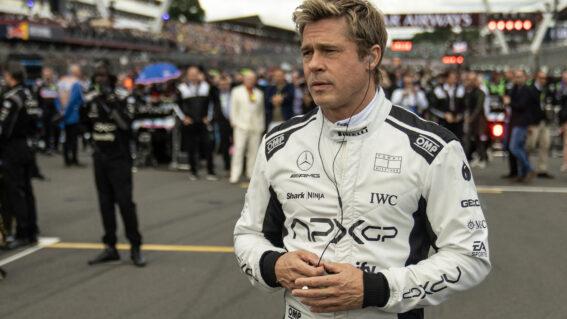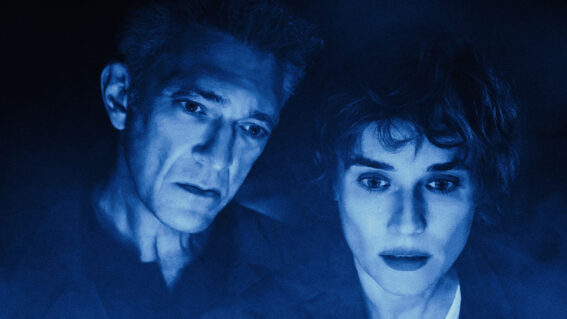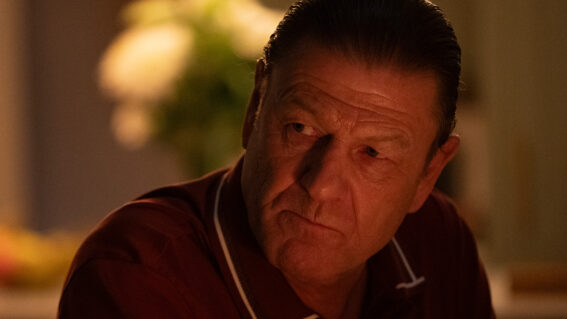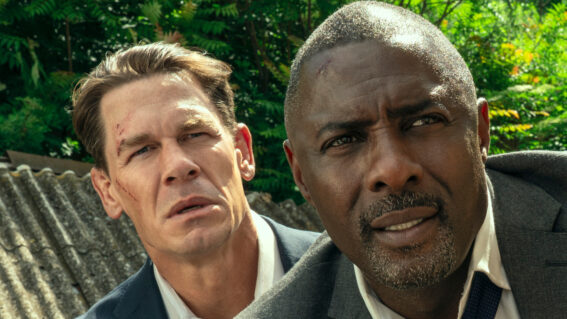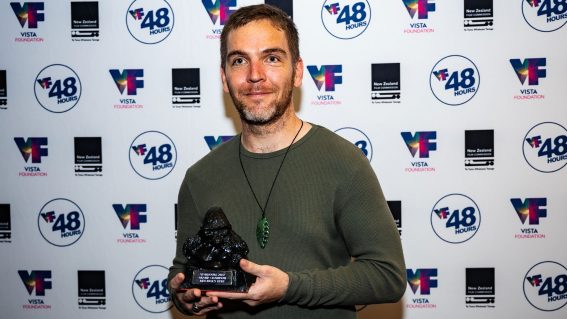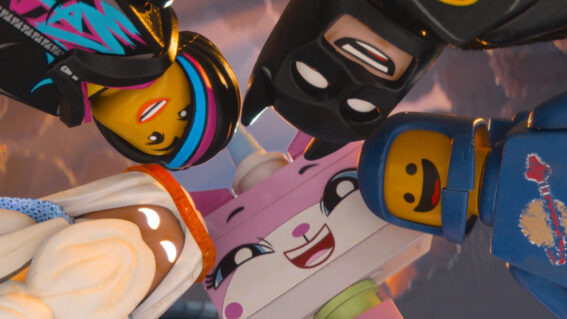Why it’s time to experience War & Peace with BBC’s enthralling series
“Simplifies its source material, yet sacrifices none of its depth…”

BAFTA-nominated filmmaker Tom Harper (Peaky Blinders) adapts Leo Tolstoy’s classic Russian romance novel in his six-part mini-series War and Peace – watch it now on Neon. You may ask: “Do we really need another do-over of War and Peace?” As Adam Fresco writes, this TV mini-series proves we do.
Huge in scope, lavish in production values, War and Peace may boast great costumes and sumptuous locations, but there’s far more on offer than surface flash. Like any good adaptation, it all starts with great source material, so working off what is generally recognised as one of the all-time literary classics helps. But the problem there is that Russian writer Leo Tolstoy’s sprawling 1869 novel is big. And by big I mean huge. Like, seriously HUGE. So who do you turn to when transitioning a much-loved colossus of a novel to screen?
When it comes to lavish, high pedigree BBC Television adaptations, then the first person on any top UK producer’s autodial is Andrew Davies. His adaptations of classics from Jane Austen to Charles Dickens include Pride and Prejudice, Middlemarch, Bleak House and Vanity Fair. All garnered shelves full of awards and earned Davies a Fellowship from BAFTA (the British version of the Oscars and Emmys combined). So, who better to adapt Tolstoy’s War and Peace?
See also:
* Everything new coming to Neon
* All new streaming movies & series
More than a bloody big book, it has become a benchmark for historical romance on an epic scale. Regarded by literary professors and critics as one of the greatest novels of world literature, Tolstoy’s sweeping tale of love, rivalry, and personal and political upheaval, is set in Tsarist Russia during the Napoleonic wars of the early 19th Century.
The story has been filmed several times, for cinema and television, adapted for radio and stage, and even transformed into an opera. The most auspicious version is the seven-hour movie, made at the height of the Cold War in 1965, directed by Sergei Bondarchuk, and regarded by many as, hands down, the greatest cinematic achievement of all time. So, no pressure. But do we really need another do-over of War and Peace? This TV mini-series proves we do.
By dusting off the restrictions of traditional costume drama, this version feels less like a history lesson, and more like the modernist spin of highly accessible historical dramas such as Peaky Blinders. And that should come as no surprise, given that Peaky Blinders director, Tom Harper, is at the helm, ensuring his top-notch cast lend modern energy to proceedings.
And what a cast. From Paul Dano (There Will Be Blood) and Lily James (Baby Driver) in the lead to support from Tom Burke (who played Orson Welles in Mank); Tuppence Middleton (Downton Abbey); Greta Scacchi (The Terror); English acting legend Jim Broadbent (Harry Potter); Irish acting powerhouses Stephen Rea (The Crying Game), Kenneth Cranham (Maleficient), and Ken Stott (The Hobbit); Scots acting giant Brian Cox (Succession); X-Files alumni Gillian Anderson, through to French acting and directing legend Mathieu Kassovitz as Napoleon Bonaparte. Heck, even Adrian Edmondson (Vivian, the punk from The Young Ones) turns up.
In the novel, Tolstoy matched historical scope and epic battles with a psychological depth to his characters that made them relatable, lovable, hateable, and all-too-human. As Pierre Bezukhov, Paul Dano is superbly cast as the main protagonist. The favourite of several illegitimate sons to one of the wealthiest nobles in the Russian Empire, Pierre is a socially awkward misfit. Returning to Russia from school in France to visit his ailing father, Pierre inherits a fortune, transforming him from an outcast admirer of Napoleon to a very eligible and wealthy Russian bachelor indeed.
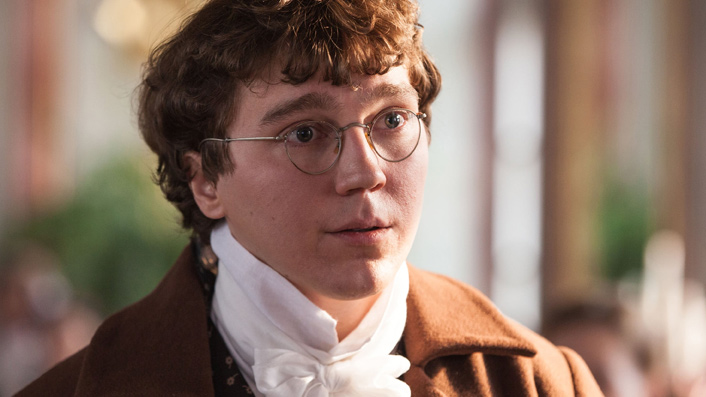
Before you can sing Jamie Foxx’s chorus of Kanye West’s ‘Gold Digger’, Pierre falls head over bank account for Hélène Kuragina (the gloriously named Tuppence Middleton on top form). Captivated and eventually devastated by the encounter, Pierre is launched on a spiritual and literal journey through Russia, the Napoleonic conflict with France, and the ups and downs of love and life in times of war and um, peace.
Kicking off with Napoleon’s 1805 campaign against Russia and Austria, and ending after Bonaparte’s ill-fated Russian invasion during the winter of 1812, adapting such a vast and hallowed tome is no easy undertaking. Nonetheless, the screenwriter, cast, and production team set about the challenge with admirable intent, bringing this classic tale to spirited new life. Packed with action, passion, and political intrigue, this is an old tale retold that not only embraces newcomers but manages to capture the essence of the original novel.
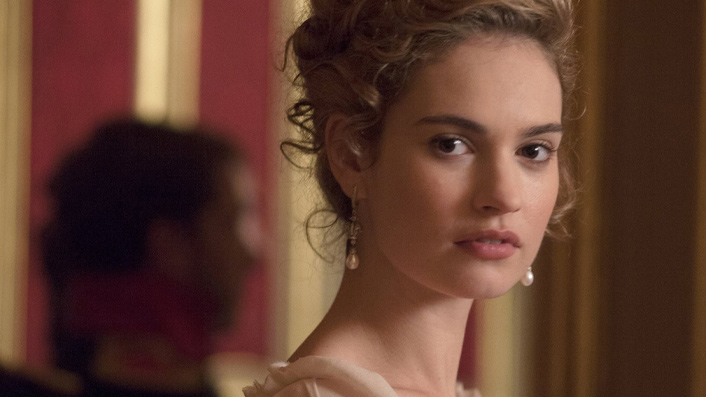
Following Pierre from sensitive outcast, through his mistreatment at the hands of the duplicitous Hélène, to his eventual discovery of true love with Natasha (a star-making part for Lily James), the story finds a firm narrative arc for the viewer to follow, with enough adventure, humour, and ups and downs along the way to make the journey enthralling, engaging, and entertaining.
Sure, Tolstoy purists will shake their heads dismissively at the vast amount of narrative that has to be cut away in adapting such a massive tale and at a modern retelling that gives female characters, such as Hélène in particular, brains as well as beauty, intellect as well as selfish intent. Such character tweaks help flesh out what might otherwise seem thinly misogynistic portrayals, avoiding the tale seeming (to a modern audience at least) little more than a hackneyed series of dusty, romantic, costume drama clichés.
Where Tolstoy succeeded in portraying fallible, warts ‘n’ all human beings, amidst the tragic turmoil of real historical events, the series achieves the laudable goal of keeping the characters firmly down to earth. They are never superheroes, idealised romantic figures who can do no wrong, or role models. Instead, they are people, in all their foolish, brave, lustful, admirable, difficult, cruel, and kind glory. Nobody is quite the villain, nor completely the hero. All are human; imperfect, hypocritical, and full of contradictions. That’s the long-lasting appeal of Tolstoy. Great writing, but realistically flawed characters. So, it’s great credit to this modern adaptation that Davies’ script has added much-needed depth to Tolstoy’s often two-dimensional female characters in particular. Professors of Russian literature might disagree, but at the end of the day, what makes classic tales last is that each new generation can make them their own.
As for any complaints about pace and soap-opera melodramatics? All the ingredients are directly lifted from the source material: drama, betrayal, dishonesty, violence, and infidelity. Adapting War and Peace and leaving out the melodrama is like adapting Dracula without the vampires. Sure the sex scenes are far racier than their portrayal in Tolstoy’s novel, but given it’s some 120-years later, it’s an indulgence easily overlooked. After all, Davies made his name adapting Jane Austen’s Pride and Prejudice, which often seems best remembered now for ensuring a young Colin Firth appeared shirtless and turning up the passion to 11.
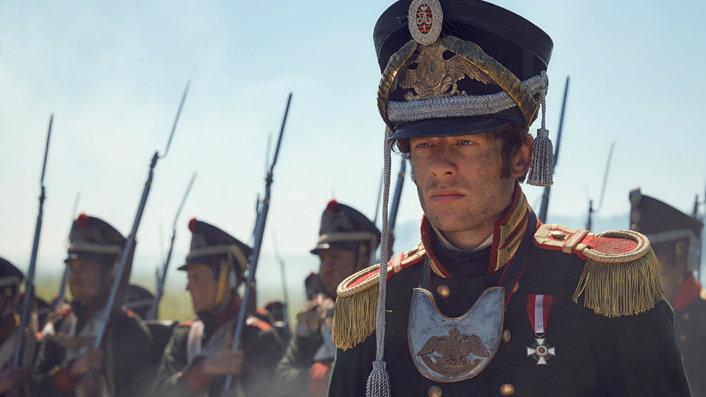
Throw in a cracking original soundtrack by composer Martin Phipps, stunning cinematography, costumes, and production values, and you have a series that, of necessity, simplifies its source material, yet sacrifices none of its depth, thanks to a cracking cast, and a script that dares to cut a classic, yet retains its spectacular scope, measured pace, and majestic poise.
For a series first aired in 2016, it remains a top-tier, English-language, mini-series literary adaptation, striking that difficult balance between remaining true to the source material, whilst updating and editing it just enough to pass muster on 21st Century TV. So, find a few spare hours, sit back, and give your sense of drama a romantic feast with this old yet new take on Tolstoy’s War and Peace.









